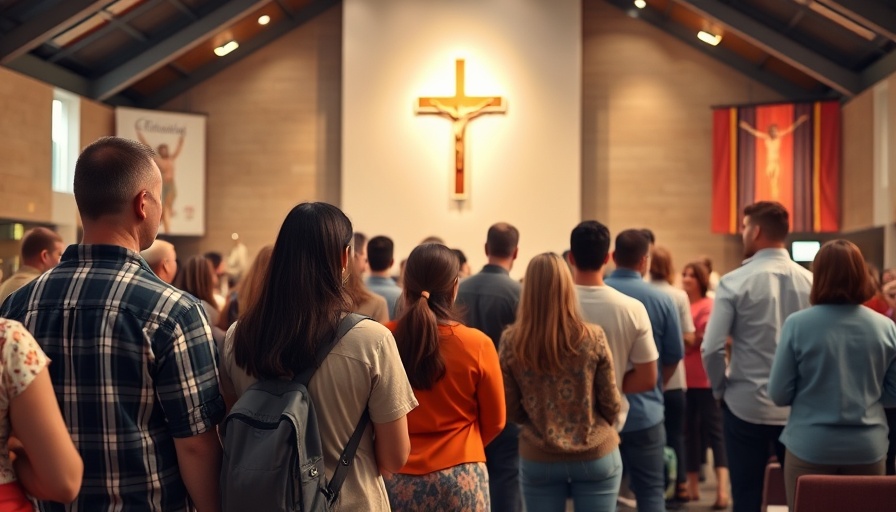
Understanding the Decline in Southern Baptist Membership
The Southern Baptist Convention (SBC), once a symbol of strength within the American Christian community, has been facing a significant decline in membership. With recent statistics showing that the denomination's numbers are at their lowest in 50 years, this trend raises important questions about the future of Christianity in America, particularly among families. Why are families increasingly turning away from a tradition that has guided many for generations?
Historical Context and Background
The Southern Baptist Convention has long been a cornerstone of evangelicalism in the United States. Founded in 1845, it grew rapidly, especially in the 20th century, where it became known for strong, community-focused teaching. However, recent decades have shown changes in societal values, increased mobility, and a growing secularism that pose challenges to traditional church structures. Family-oriented communities, once tightly knit through their local churches, now often find themselves fragmented, with younger generations exploring different avenues for fulfillment.
How Declining Membership Affects Families
For Christian faith-centered families, the decline in Southern Baptist membership can create a sense of disconnection. As the community becomes less visible, families may struggle to find congregations that share their values and support their spiritual growth. The church has historically provided not just spiritual guidance, but a sense of belonging. Children raised in faith-based households may now face challenges in finding peers who share their beliefs. This generational gap can lead to feelings of isolation among youth in faith.
Future Predictions: What Lies Ahead?
Experts in church dynamics suggest that if the current trends continue, we may see an even greater number of families leaving formal church settings. This can lead to alternative forms of worship that prioritize smaller, home-based gatherings. These transformations might provide an opportunity to develop deeper family bonds, as parents and children explore faith together in a more relaxed environment. The question remains whether such informal settings can replicate the sense of community traditionally offered by the church.
Counterarguments and Diverse Perspectives
Some argue that traditional denominations like the SBC can adapt and evolve to engage modern families effectively. By incorporating contemporary worship styles and focusing on issues that resonate with today’s youth—like social justice, environmental stewardship, and mental health—the church could potentially reach those who've distanced themselves. The aim would be to show that faith can still play an active role in addressing the challenges families face.
Encouragement for Families Amidst Change
For families navigating this shifting landscape, it’s essential to recognize the importance of staying grounded in faith, even when traditional church structures seem to falter. Engaging with scripture at home, fostering discussions about faith, and building connections with other like-minded families can cultivate a resilient foundation for spiritual growth. By focusing on personal faith journeys, families can create meaningful connections within and outside traditional church walls.
As the Southern Baptist Convention faces these challenges, it sparks an important dialogue for Christian families: how can we maintain our faith and community ties in an evolving world? By leaning into our traditions while remaining open to new ways of worship and connection, families can continue to thrive spiritually regardless of the state of formal church membership.
Actions Families Can Take to Foster Unity
Parents are encouraged to take initiative in fostering an environment where faith can flourish within the family unit. This could include regular family devotionals, attending different community events, or even creating informal discussion groups with friends and neighbors. These actions can serve to reinforce familial bonds and create supportive communities that reflect the values cherished within the Southern Baptist faith.
In conclusion, while the decline in Southern Baptist membership may pose challenges, it also opens up new opportunities for families to engage with their faith in meaningful ways. Encourage open dialogue within your family about these changes, explore new avenues for connection, and remain steadfast in your journey together in faith.
 Add Row
Add Row  Add
Add 








Write A Comment